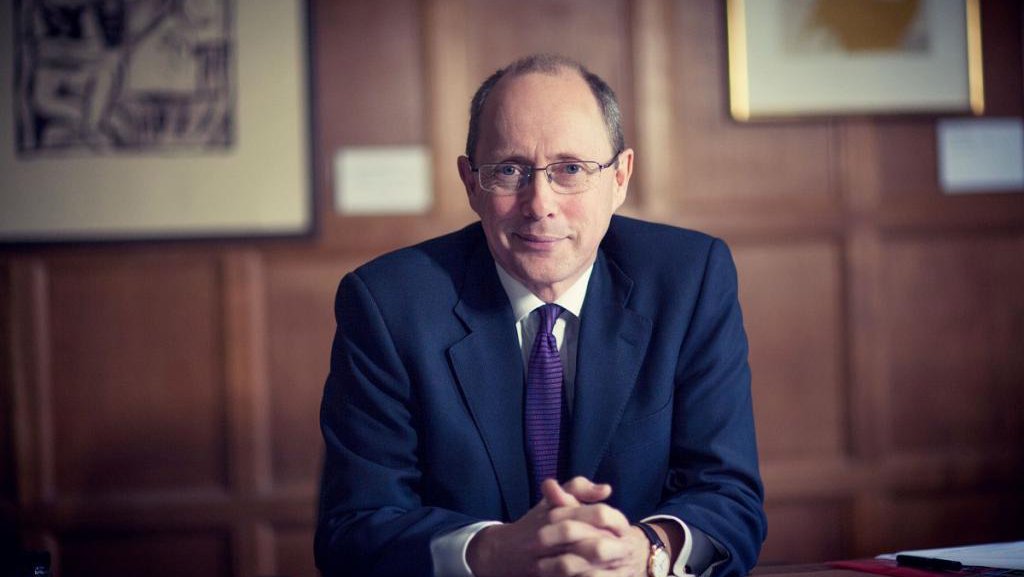
Councils up and down the country are grappling with how they continue to look after some of our most vulnerable people.
Their efforts are being hamstrung by an overly centralised funding model and a reliance on two out of date property taxes — business rates and council tax.
Today The QT begins a series that takes an in-depth look at the care sector through the eyes of the carers, the cared for, the uncared for, and the army of unpaid people who make sacrifices on a daily basis to look after the people they love.
The fundamental question is: Do we care?
The sector is trapped in a crisis with more people asking for support, fewer getting it, soaring levels of staff vacancies and plummeting levels of public dissatisfaction with services.
Why is social care a council responsibility in the first place? Shouldn’t it sit centrally alongside healthcare? Do we need a National Care Service?
The longer that adult and children’s social care remains a responsibility of our councils the more pressure there will be to close libraries, community centres, playing fields, youth centres, public toilets and a range of other things that we used to take for granted.
Today, writing in our Civilised Society section, former Newcastle council leader Nick Forbes, who was senior vice chair of the Local Government Association (LGA) for more than six years, said there needs to be a more radical approach to funding councils.

He says: “Labour should be bold and commit to abolishing council tax. The short-term bravery required to ride out the inevitable backlash of change is surely preferable to the long, slow death of local government.”
Figures produced by the LGA showed that for every £1 the average council had available to spend 10 years ago 52p went on adult and children’s social care. Last year that figure was 61p.
It’s a serious situation — yet it’s not one that the main political parties are looking to address.
Last week
The QT highlighted that the Government controls 90% of all the money raised in taxation – the highest level of centralised control in Europe. And there has been a real-terms cut of 40% in the central government grant to councils in the past 14 years.
Kevin Muldoon-Smith, associate professor in strategic public sector finance and urban adaptation at Northumbria University, said that since 2010 the Government had been passing the buck to local government, without passing the bucks.
He said: “There hasn’t been a real relative needs assessment carried out since circa 2013. The result is that the local government finance system is quite literally untethered from need.”

On Sunday
Sir Andrew Dilnot, whose Government-backed commission proposed a series of measures including a cap on social care costs in 2011, criticised both major parties for failing to address the issue in their manifestos.
Writing in The Observer, he said: “There’s absolutely no doubt that we’re going to need to spend quite a lot more on both healthcare and social care. At some level, we’re having a little conversation about health, but we’re not having that conversation at all about social care.
“There’s no discussion of the overall level of funding that is needed for social care, no serious addressing of the desperate state that the existing means-testing system is in. To go forward to a General Election without that being a significant part of the national discussion just seems irresponsible on both sides.”
The last major pronouncement on social care came in July 2019 when the newly-elected Boris Johnson pledged ‘to fix the crisis in social care’. Few will be surprised that a Johnson pronouncement did not materialise, but he resigned as Prime Minister in September 2022 and nothing, as they say, continues to happen.
Sir Julian Hartley, chief executive of NHS Providers, said: “Social care needs serious political attention, meaningful reform and long-term, sustainable funding to address huge amounts of unmet and undermet need, quality of care and chronic workforce shortages.”
On Monday
Home Secretary James Cleverly took to X (formerly known as Twitter) to show where the chronic shortage of carers sits on his priority list: “Today in Parliament we have laid an order to ban overseas care workers from bringing dependants,” he boasted.
Today in Parliament we have laid an order to ban overseas care workers from bringing dependants.
— James Cleverly🇬🇧 (@JamesCleverly) February 19, 2024
This is just one part of our plan to deliver the biggest-ever cut in migration 👇 pic.twitter.com/ZRTMfvVho8
At the school of Solutions R Us, he would be lucky to earn a grade of E minus. But it would be reasonable to conclude that the Government puts appeasing the right wing of their party ahead of the needs of some of our most vulnerable young and elderly people.
On the same day
Birmingham City Council, one of several councils that have issued Section 114 notices — which means they are effectively bankrupt — gave us a glaring reminder of where the North East is heading.
They announced a series of measures to raise council tax by 21% over the next two years, cut back on jobs, dim street lights, reduce the number of bin collections, increase burial costs, and reduce the budget for highway repairs — at a time when it is not just Daily Mail readers who are up in arms over the number of potholes on our roads.

And then there’s their social care.The adult social care budget will be reduced by £23.7m in the next financial year while the Children’s Young People and Families department will have to find savings of £51.5m.
From where is far from clear.
Council leader John Cotton said: “There are issues in this council that need to be fixed but we’re also seeing a crisis raging right across local government as well.”
Quite.
Every council in England is destined to end up in the same place as Birmingham. The only difference is the direction and speed they are travelling at.
Central Government has to act. Any political party with pretensions of forming the next government has to have a plan — and tell us what it is. Soon.
The QT is interested to know what you think, or if you have a story to tell. You can leave a comment, email or use the Feedback or Got a Story panels below to get in touch.

On 3rd February 1879 Newcastle’s Mosley Street became the first road in the world to be lit by electric lighting, showcasing the potential of Joseph Swan’s incandescent light bulb.












3 thoughts on “If we care, it can’t go on like this”
Well done The QT for highlighting this massive problem. As you say, successive Governments have kicked the can down the road. We can’t do that any longer. Our elderly population is growing, we are living longer and there is more and more poverty. It’s a recipe for disaster. If Labour get in – as seems likely – they must grasp the nettle. I think the National Care Service is exactly the right approach… but it must take out the profit element which has seen the private sector exploit the situation,
Very pleased that The QT is highlighting this,
In my view, and to use your term, Civilised Society is measured by the way it supports the young, the old, the vulnerable, We are missing a coherent sense of mission to create a good life for these groups., and the national leadership to enrol people in this big mission.
Tony Blair’s 1997 mantra was “education, education, education”. Our 2024 equivalent should be “care, care, care for all”.
This is a big ask and you’ll be pleased to know that I won’t expand on this here although I have spent much of the last five years working on the value of technology in housing & care environments and do believe that embracing this could dramatically remove pressure in our fragmented and overstretched system … with a National Strategy for Independent Living at the heart.
For now, just the central mission-centric points.
We must put people first … and organisations a distant second.
We must listen to what people want … so they can live the life they want.
And we must all ask ourselves, every day, ‘how have I cared for others today?’
I’ve just retired from a 35 years long career in local authority adult care social work spent working in Newcastle & then Co Durham. I have watched the drift to where we are now whilst feeling helpless & hopeless about the lack of any government serious about supporting social care. I have seen so many colleagues leave. Burnt out & feeling they’re not doing assessments so much of need but of what that person might cost the system. Pay in the sector has fallen by 22% in real terms since 2010. Front line workers are also effectively subsidising assessment visits as car mileage rates haven’t shifted since 2012. Recruitment & retention have hit crisis point & that means it has for users & their families too.